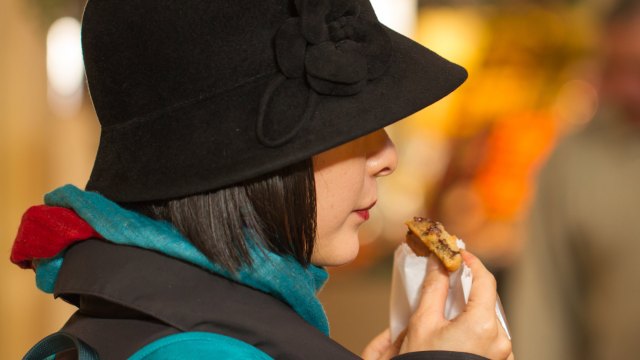Self-Promoters Should Avoid Humblebragging — It’s Insincere

Humblebragging is an annoying form of self-promotion — it’s obnoxious and comes off as insincere. In case you’re not familiar, it’s a thinly disguised form of boasting that’s framed as a complaint. Example: I’m so tired of people telling me how good I look in these shorts. Melissa Dahl from NYMag writes that “hubblebraggarts” aren’t fooling anyone by sounding tired of getting compliments, and according to a recent study by Ovul Sezer, Francesca Gino, and Michael I. Norton, you’re better off just regular-bragging in order to get ahead.
That’s right: These researchers tested humblebragging and its effectiveness across five experiments, writing that “humblebragging is less effective than simply complaining, because complainers are at least seen as sincere. Despite people’s belief that combining bragging and complaining confers the benefits of both self-promotion strategies, humblebragging fails to pay off.”
In one experiment, researchers sought to find out if humblebragging proved to be a more or less effective way to get one’s point across compared to straightforward bragging. The researchers had 201 participants read either a brag stating, “I get hit on all the time,” or a humblebrag: “Just rolled out of bed and still get hit on all the time, so annoying.”
The participants were then asked to rate how attractive they thought the person behind the statement was. The humblebraggers were rated as less attractive than the braggers, though, not by much. The humblebraggers received a 4.34 out of a possible 7, while the braggers received a 4.91.
In another experiment, the researchers wanted to test the likability of the humblebragger. So, they asked a group of 302 participants to imagine a person saying one of three statements: a complaint (“I am so bored”), a brag (“People mistake me for a model”), or a humblebrag (“I am so bored of people mistaking me for a model”). Based on this one statement, participants were asked to rate how much they liked this person and how sincere they thought they were.
From most liked to least, participants rated the complainer as the most likable, then the bragger, and lastly, the humblebragger. The participants rated the statements in the same order for sincerity, as well. It shouldn’t be a big surprise to hear that humblebragging comes off as inauthentic — it’s just now we have the research to prove it.
People may resort to humblebragging as a way to get ahead in business — after all, studies show modesty won’t help move your personal brand forward. So, self-promotion is key to getting noticed in the office, but researchers write that “would-be self-promoters should choose [bragging] — and at least reap the rewards of seeming sincere.”
Take Barbara Corcoran, in her Big Think interview, she talks about how she was able to get more money out of her company by making sure she worked at building her brand. Hard work helps pay the bills, but it’s your personal brand that sends you above and beyond:
Read more atNYMag.
Photo Credit: Shutterstock





